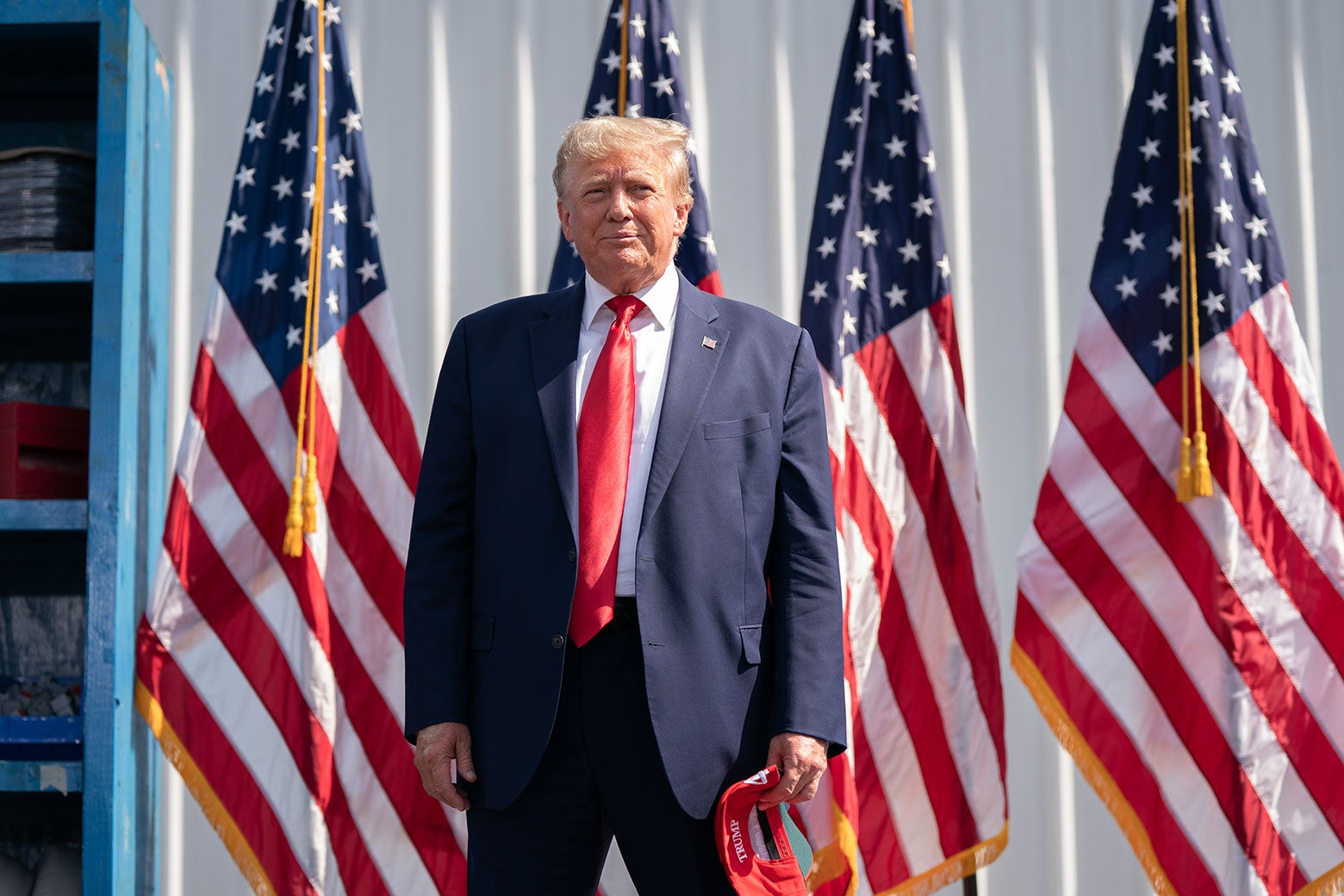On Monday, Team Trump filed a blistering opposition to the DOJ’s request for the judge overseeing the 2020 election interference case, Tanya Chutkan, to issue a “narrowly tailored” gag order limiting the former president’s ability to make what the DOJ described as “extrajudicial statements that present a serious and substantial danger of materially prejudicing this case.”
With the filings on the DOJ motion now complete, a critical conflict in the 2020 election case is now ripe for decision. The pending ruling is not only crucial to the progress of the D.C. case, but will impact all prosecutions of the former president.
Arguing that any gag order would be a blatant violation of the former president’s First Amendment rights, especially given his role as a candidate for the country’s highest office, Trump’s lawyers assert that Judge Chutkan is barred from doing anything to limit what their client says, regardless of how inflammatory she believes those statements may be.
Notwithstanding the aggressiveness of this black-and-white approach, we already know two important things. First, based on her earlier protective order and previous statements, we know that the judge believes Trump’s screeds threaten the administration of justice and cannot be ignored.
Weeks before the government sought the gag order, Chutkan warned Trump counsel John Lauro about the consequences of his client’s continuing “inflammatory” public statements. Such statements, she said, will require her to “take whatever measures are necessary to safeguard the integrity of these proceedings.”
The second thing we know is that Chutkan is already considering an indirect yet devastating action she can take to punish Trump’s contemptable behavior in a way that has no impact on his First Amendment rights—moving up the trial date.
As Chutkan advised defense counsel in that same session: “The more a party makes inflammatory statements about this case which could taint the jury pool, the greater the urgency will be that we proceed to trial quickly.”
Citing the need to limit the exposure of potential jurors to Trump’s inflammatory statements, she can order the trial to begin on, say, the January 2024 date originally requested by the government.
Objections based on the defense counsel’s inability to prepare in the shortened time can be met by Judge Chutkan’s confidence in defense counsel and the adequacy of the many months already utilized plus the three months going forward. She can also address counsels’ concerns by noting that the additional time pressure of which they complain is entirely the responsibility of their client, who could stop his inflammatory and dangerous rhetoric at any time.
A federal judge’s authority over her courtroom calendar is near absolute, leaving Trump without a valid basis to appeal.
A January trial date would end the infamous delay tactics upon which Trump has always relied. Most importantly, it meaningfully increases the odds that Donald Trump will be a convicted felon before the July 15, 2024, Republican convention—a status likely to give delegates cause to pause before supporting his nomination.
Let’s play it out.
Jury selection can take place in the weeks prior to the trial date set. Even if the government’s case takes, say, two months to present, we are now roughly in the first half of March. There is no real defense case, as Trump taking the stand would be an act of self-immolation. There are, at best, a limited number of documents counsel can place in evidence in a defense case, and most all relevant potential defense witnesses, such as John Eastman and Rudy Giuliani, have their own legal problems that will force them to invoke their Fifth Amendment privileges and not testify.
Even if we give the defense roughly a week or so to present a case, and add a few days to resolve legal disputes, such as conflicting versions of proposed jury instructions the parties will submit to the court, summations should take place around the middle of April under this timeline.
While predicting the length of jury deliberations is impossible—given the strength of the prosecution’s case and the weakness of the defendant’s, and given the reality that by the time deliberations begin, jurors will have sat anonymously and under the intrusive protection of the U.S. Marshals Service for two and a half months—deliberations by people anxious to get back to their lives should not last more than a few weeks. We are now in early May.
Assuming, as I do, a guilty verdict, even if the trial and/or jury deliberations exceed my guesstimates, Donald Trump would very likely be a convicted felon facing imprisonment before the July 15 Republican convention begins under this calendar.
While MAGA delegates may find that reality yet another reason to support him, other delegates—faced with the prospect of trying to win the 2024 election with a candidate convicted of trying to undo the prior one, and one they now have much less reason to fear—may not feel the same way.
If the pathway about to open proceeds in the direction it is now pointing, Donald Trump’s return to Washington is far more likely to be for his criminal sentencing than his presidential inauguration.
